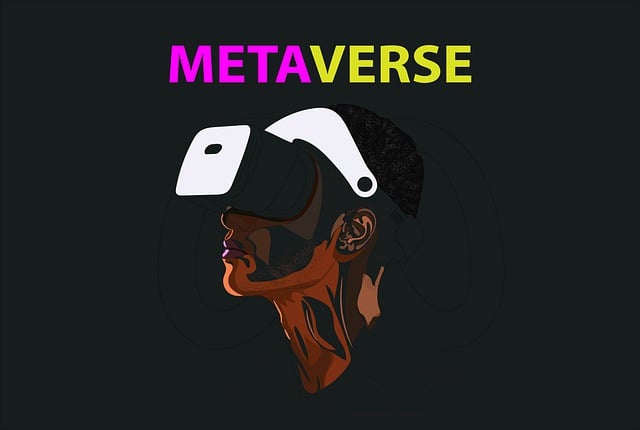The rise of online therapy platforms has dramatically transformed mental health services, providing convenient, accessible virtual therapy sessions via video conferencing tools. This shift, accelerated by technology and growing awareness of mental health, offers unparalleled benefits during and beyond the pandemic. Virtual sessions expand access, challenge traditional practices, and promote inclusivity in mental healthcare. They provide diverse formats (text, video, phone), enhance security through robust encryption and privacy measures, and offer user-friendly interfaces for seamless interactions. While challenges remain, like non-verbal cues and building trust, the future of mental health care leans heavily on digital solutions, with virtual therapy sessions leading the way, driven by advancements in technology and growing acceptance.
Online therapy platforms have emerged as a revolutionary force in mental health care, offering remote access to therapeutic services. In today’s digital age, understanding these platforms and their benefits is crucial for both patients seeking support and professionals aiming to expand their reach. This article explores the rise of online therapy, its accessibility advantages, diverse service types, privacy measures, patient experiences, and future trends, shedding light on the transformative potential of virtual therapy sessions.
Understanding Online Therapy Platforms and Their Rise

In recent years, the rise of online therapy platforms has significantly transformed mental health services, making virtual therapy sessions increasingly accessible and popular. These platforms offer a convenient and discrete way for individuals to receive therapeutic support from the comfort of their homes. Through video conferencing tools, clients can connect with licensed therapists, engaging in real-time conversations that mimic traditional in-person sessions. This shift towards digital therapy is largely driven by advancements in technology and a growing recognition of mental health as an integral part of overall well-being.
The convenience and flexibility of online therapy platforms have been particularly appealing during the global pandemic, where social distancing measures limited in-person interactions. As a result, many people who may have otherwise hesitated to seek professional help found themselves turning to virtual therapy sessions for much-needed support. This trend has not only expanded access to mental health services but also challenged traditional notions of therapeutic practice, paving the way for a more inclusive and accessible future in mental healthcare.
Benefits of Virtual Therapy Sessions: Accessibility and Convenience

The benefits of virtual therapy sessions are numerous, especially in today’s digital age. One of the most significant advantages is the unparalleled accessibility it offers. Individuals from remote areas or those with limited mobility can now access professional counseling and psychotherapy from the comfort of their homes. This accessibility removes geographical barriers, ensuring that mental health support is available to a broader spectrum of people.
Convenience also tops the list when it comes to virtual therapy sessions. Clients can schedule appointments at times that suit them best, eliminating the need to travel and potentially miss work or other commitments. Online platforms provide flexibility, allowing for more regular sessions and consistent care without the hassle of commuting. This convenience has proven to be a game-changer, especially for those juggling busy schedules while navigating life’s challenges.
Types of Online Therapy Services: Text, Video, and Phone Calls

Online therapy platforms offer a range of services tailored to different needs, with text, video, and phone calls being the most common formats for virtual therapy sessions. Text-based communication, often through secure messaging systems, is a popular choice for those seeking more discreet and asynchronous support. This method allows clients to reflect on their thoughts and feelings at their own pace, crafting detailed messages that they can send to their therapists.
Video therapy sessions bring a level of interactivity and face-to-face contact to virtual therapy. Through video conferencing tools, clients and therapists can engage in real-time conversations, enhancing the emotional connection often vital for therapeutic progress. Phone calls represent a more traditional approach, offering live verbal interactions where immediate feedback and support can be provided. Each format has its advantages, catering to diverse preferences and situations, thereby expanding access to mental health services through these online platforms.
How Secure Are Virtual Therapy Sessions? Privacy and Confidentiality Measures

The security and privacy of virtual therapy sessions have become paramount as online mental health services gain popularity. Therapy platforms employ various encryption technologies to protect patient data during transmission and storage, ensuring that sensitive conversations remain confidential. These measures are crucial for building trust between clients and therapists, especially when discussing personal and sometimes traumatic experiences.
Additionally, reputable therapy apps offer secure sign-in mechanisms, often utilizing two-factor authentication, and provide users with control over their information sharing. They also adhere to strict data protection regulations like HIPAA (Health Insurance Portability and Accountability Act) in the US or GDPR (General Data Protection Regulation) globally, ensuring that personal details are handled with utmost care. Such robust privacy and confidentiality measures contribute to making virtual therapy sessions as secure as traditional in-person consultations.
Choosing the Right Platform: Factors to Consider for Effective Remote Therapy

When selecting an online therapy platform, several key factors come into play for ensuring effective remote therapy sessions. Firstly, consider the platform’s security and privacy measures to protect sensitive information. With many individuals sharing personal details during virtual therapy sessions, robust encryption protocols and compliance with data protection regulations are non-negotiable.
Additionally, ease of use and accessibility are vital. A user-friendly interface that facilitates smooth communication and reduces technical hiccups can greatly enhance the therapeutic experience. Features like live video chat, messaging functions, and secure file sharing also play a significant role in making virtual therapy sessions convenient and productive. Moreover, exploring platforms that offer diverse therapeutic modalities and specialized services can cater to individual needs more effectively.
Patient Experience: Navigating Online Therapy Platforms

The patient experience with online therapy platforms has evolved dramatically, offering a convenient and accessible alternative to traditional in-person visits. For many individuals seeking mental health support, virtual therapy sessions provide a comfortable and safe space to connect with licensed therapists from the privacy of their homes. This accessibility is particularly beneficial for those living in remote areas or facing challenges such as transportation issues or busy schedules.
Navigating these platforms involves a simple process: patients typically create an account, schedule sessions through an intuitive scheduling system, and participate via video conferencing tools. The user-friendly interfaces ensure that even tech-resistant individuals can easily access their virtual therapy rooms. This seamless experience encourages consistency in treatment, fostering deeper connections as therapists and clients build rapport despite the digital barrier, making online therapy a viable and effective option for many.
Therapeutic Benefits: Success Stories from Virtual Sessions

The rise of online therapy platforms has brought about a significant shift in mental health care, making therapeutic services more accessible than ever before. Virtual therapy sessions offer numerous benefits, allowing individuals to receive professional support from the comfort of their homes. One of the key advantages is convenience; clients can attend sessions at any time, eliminating travel and fitting around busy schedules. This flexibility encourages consistency in treatment, which is vital for positive outcomes.
Success stories from virtual therapy highlight its effectiveness. Many clients report improved mental well-being, reduced symptoms of anxiety and depression, and enhanced overall quality of life. Through video conferencing, therapists can create a safe and supportive environment, fostering open communication. Online platforms often include secure chat features, allowing clients to reflect between sessions and provide continuous support. These digital tools have proven successful in helping people from diverse backgrounds, offering a convenient and discreet alternative to traditional face-to-face therapy.
Challenges and Limitations: Overcoming Barriers in Online Therapy

Online therapy platforms offer a convenient and accessible approach to mental health support, but they also come with their share of challenges and limitations. One significant barrier is ensuring effective communication during virtual therapy sessions. The lack of non-verbal cues, such as facial expressions and body language, can lead to misunderstandings or misinterprets. Additionally, technical issues like poor internet connectivity or unreliable video conferencing tools can disrupt the flow of sessions, affecting both patient comfort and therapist assessment.
Another challenge is establishing and maintaining trust between the therapist and client in a digital setting. Patients may feel less comfortable discussing sensitive topics online, especially if they have concerns about data privacy or security breaches. Overcoming these barriers requires ongoing evaluation and adaptation from therapists, who must invest in reliable technology, develop strong communication skills for virtual interactions, and ensure secure platforms to provide the best possible care through virtual therapy sessions.
The Future of Mental Health Care: Trends and Innovations in Virtual Therapy

The future of mental health care is increasingly shifting towards digital solutions, with virtual therapy sessions at the forefront of this revolution. The global pandemic accelerated the adoption of online therapy platforms, highlighting their potential to make quality mental healthcare more accessible and convenient for many individuals who might have otherwise struggled to find suitable support. This trend shows no signs of slowing down as both patients and professionals recognize the numerous benefits virtual therapy offers.
Innovations in technology are continually enhancing the therapeutic experience. Video conferencing tools now provide secure, real-time connections facilitating interactive sessions. Additionally, artificial intelligence (AI) and machine learning algorithms are being integrated to personalize treatment plans, offer immediate feedback, and even predict potential crisis situations. These advancements promise to make virtual therapy sessions more effective and tailored to individual needs, potentially reshaping the landscape of mental healthcare accessibility.
